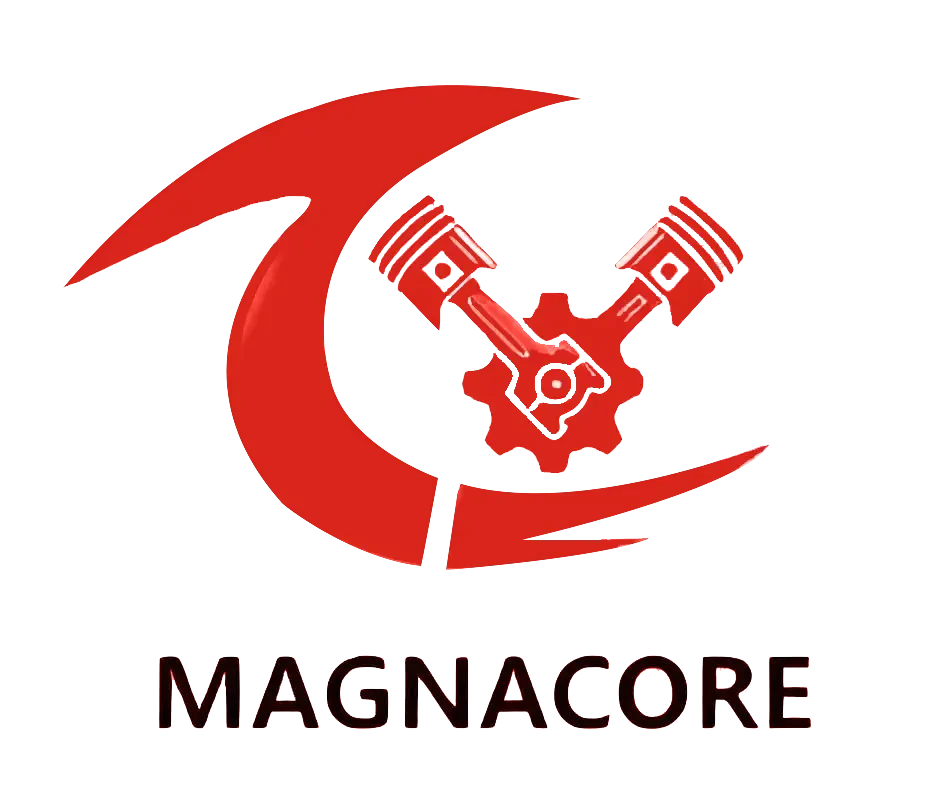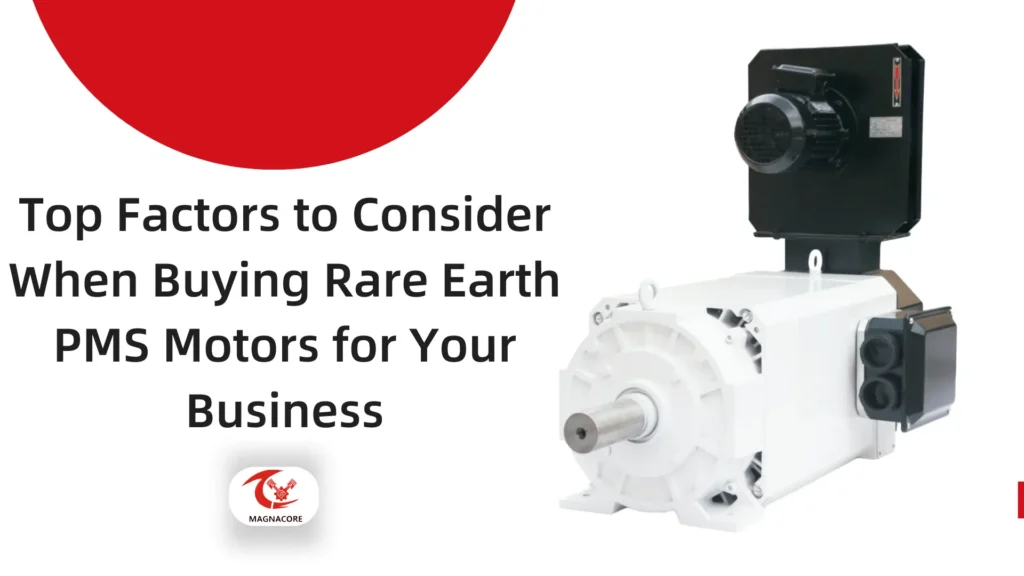Rare earth permanent magnet synchronous (PMS) motors are revolutionizing industries with their unmatched efficiency, durability, and performance.
Whether you’re in manufacturing, HVAC, or renewable energy, choosing the right PMS motor can significantly impact your operational efficiency and bottom line.
However, with so many options available, selecting the best motor for your business can be overwhelming.
This article breaks down the top factors to consider when purchasing rare earth PMS motors, helping you make an informed decision that aligns with your business needs.
And More:
- Top 10 Permanent Magnet Motor Manufacturers in Singapore
- Quality Assurance of High-Performance Permanent Magnet Motors Made in China
What Are Your Specific Application Requirements?
Understanding Load and Torque Needs
Different applications require different levels of torque and load capacity.
For example, HVAC systems typically need motors that can handle variable speeds to match changing environmental conditions, while industrial machinery may require high-torque motors for heavy lifting and consistent performance.
It’s essential to clearly define your application requirements to ensure you choose a motor that performs optimally under the specific conditions it will face.
A thorough understanding of these parameters will lead to better efficiency, longevity, and productivity.
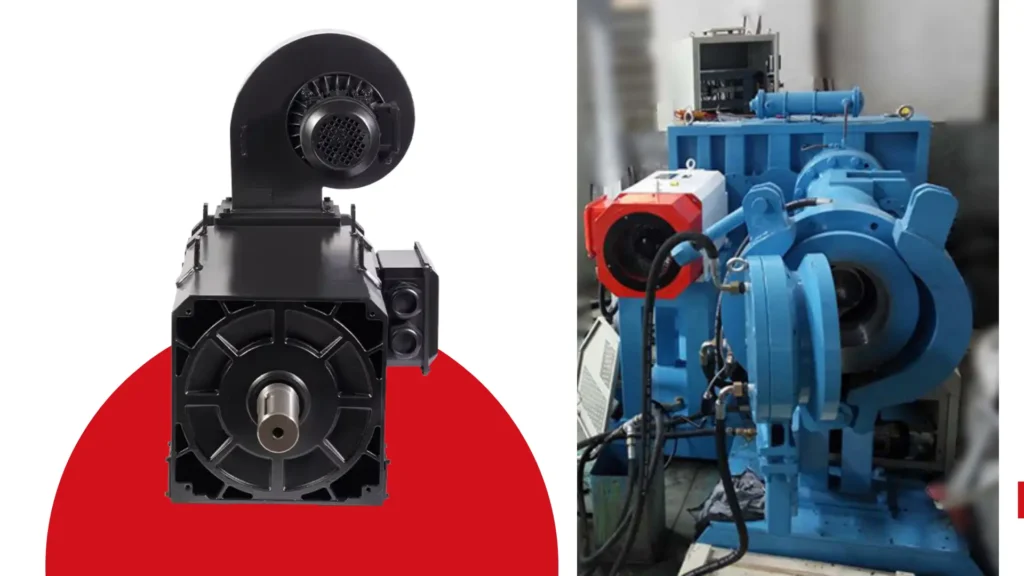
Operating Environment Conditions
Consider the environment where the motor will operate.
Factors like temperature, humidity, and exposure to dust or chemicals can significantly affect motor performance and lifespan.
For instance, motors used in high-temperature settings may need additional thermal protection, while those in humid environments might require moisture-resistant features.
Rare earth PMS motors are known for their durability, but selecting a model designed for your specific conditions is crucial to ensuring reliable operation and minimizing maintenance needs.
Integration with Existing Systems
Ensure the motor is compatible with your existing infrastructure.
This includes checking voltage requirements, control systems, and physical dimensions to avoid costly modifications.
If the new motor cannot seamlessly integrate with your current setup, it could lead to inefficiencies or require additional investments in compatible components.
Compatibility assessments should be part of your purchasing process to ensure a smooth installation and optimal performance.
How Important Is Energy Efficiency to Your Business?
Comparing Efficiency Ratings
Rare earth PMS motors are renowned for their high efficiency, but performance can vary between models.
Look for motors with certified efficiency ratings, such as those provided by the International Electrotechnical Commission (IEC) or the National Electrical Manufacturers Association (NEMA).
These certifications help identify models that maximize energy savings and reduce operational costs.
Understanding these ratings can guide you toward the models that will provide the best performance for your specific needs.
Long-Term Energy Savings
While energy-efficient motors may have a higher upfront cost, they often pay for themselves through reduced electricity bills over time.
Calculate the potential savings based on your typical usage to understand the long-term value of investing in a more efficient motor.
Analyzing energy consumption patterns can help project how much you could save annually, making a compelling case for the investment.
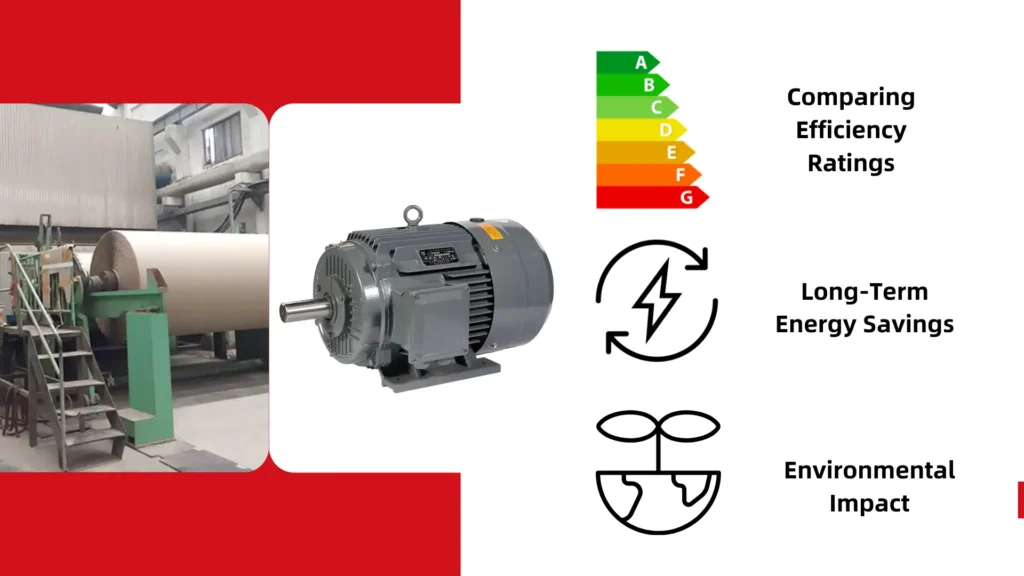
Environmental Impact
Energy-efficient motors not only save money but also reduce your carbon footprint.
If sustainability is a priority for your business, investing in high-efficiency PMS motors is a smart choice.
Lower energy consumption translates to fewer emissions, which can enhance your corporate social responsibility profile and appeal to environmentally conscious customers.
What Is Your Budget and ROI Expectation?
Upfront Costs vs. Long-Term Benefits
Rare earth PMS motors can be more expensive than traditional motors, but their superior performance and energy savings often justify the investment.
Evaluate your budget and weigh it against the expected return on investment (ROI).
Consider the total cost of ownership, including installation, operation, and maintenance costs, to get a realistic picture of how the initial investment will pay off over time.
Maintenance and Lifespan Costs
PMS motors typically require less maintenance and have a longer lifespan than conventional motors.
This can significantly reduce lifecycle costs. Factor in these savings when assessing the total cost of ownership.
A longer lifespan not only means fewer replacements but also less downtime and associated costs, making PMS motors more economically viable in the long run.
Financing and Incentive Programs
Many governments and organizations offer incentives for adopting energy-efficient technologies.
Explore these programs to offset initial costs and improve ROI.
Grants, tax credits, and rebates can make a significant difference in the financial feasibility of your investment in rare earth PMS motors, allowing you to allocate resources to other critical areas of your business.
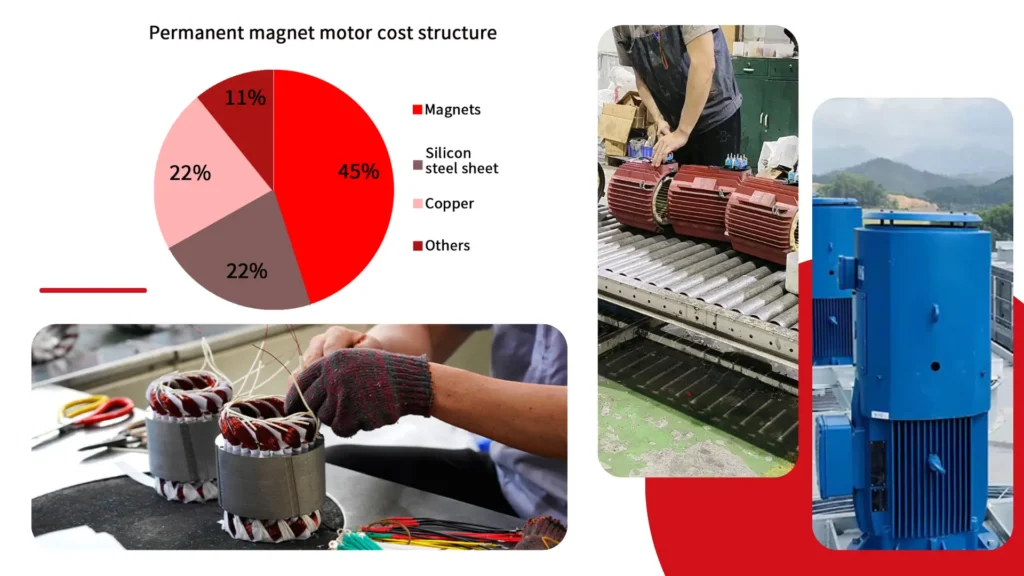
How Do You Evaluate Motor Quality and Reliability?
Certifications and Standards
Look for motors that meet international standards such as ISO, CE, or UL.
These certifications ensure the motor has been tested for safety, performance, and reliability.
Compliance with established standards can provide peace of mind that the motor will perform as expected and meet regulatory requirements.
Manufacturer Reputation
Choose a reputable manufacturer with a proven track record in producing high-quality PMS motors.
Research customer reviews and industry rankings to gauge reliability.
A manufacturer’s reputation can be a strong indicator of the quality of their products, as well as their customer service and support capabilities.
Warranty and Support Services
A strong warranty and accessible customer support are indicators of a reliable product.
Ensure the manufacturer offers comprehensive after-sales services, including technical support and troubleshooting assistance.
A robust warranty can protect your investment and provide assurance that you will receive support in case of any issues.
What Are the Key Technical Specifications to Check?
Power and Speed Ratings
Match the motor’s power and speed ratings to your application needs.
Oversized or undersized motors can lead to inefficiencies and increased wear and tear.
Ensure that the motor’s specifications align with the operational requirements of your application to maintain efficiency and prolong service life.

Thermal Management Features
Rare earth PMS motors generate less heat than traditional motors, but effective thermal management is still essential.
Look for motors with built-in cooling systems or heat-resistant materials.
Proper thermal management ensures the motor operates within safe temperature limits, reducing the risk of overheating and extending its lifespan.
Control and Compatibility
Ensure the motor is compatible with your control systems, such as variable frequency drives (VFDs).
This ensures seamless integration and optimal performance.
Compatibility with existing control systems is crucial for maximizing the motor’s capabilities and ensuring efficient operation.
How Does Supply Chain Stability Affect Your Purchase?
Dependence on Rare Earth Materials
Rare earth elements are critical for PMS motors, but their supply can be volatile due to geopolitical factors.
Assess the stability of your supplier’s supply chain to avoid disruptions.
Understanding the supplier’s sourcing practices and their exposure to geopolitical risks can help mitigate potential supply chain issues.
Lead Times and Availability
Long lead times can delay projects and increase costs.
Verify the availability of the motor model you need and plan accordingly.
Being proactive in assessing lead times can help you schedule your projects effectively and avoid unexpected delays that can affect your operations.
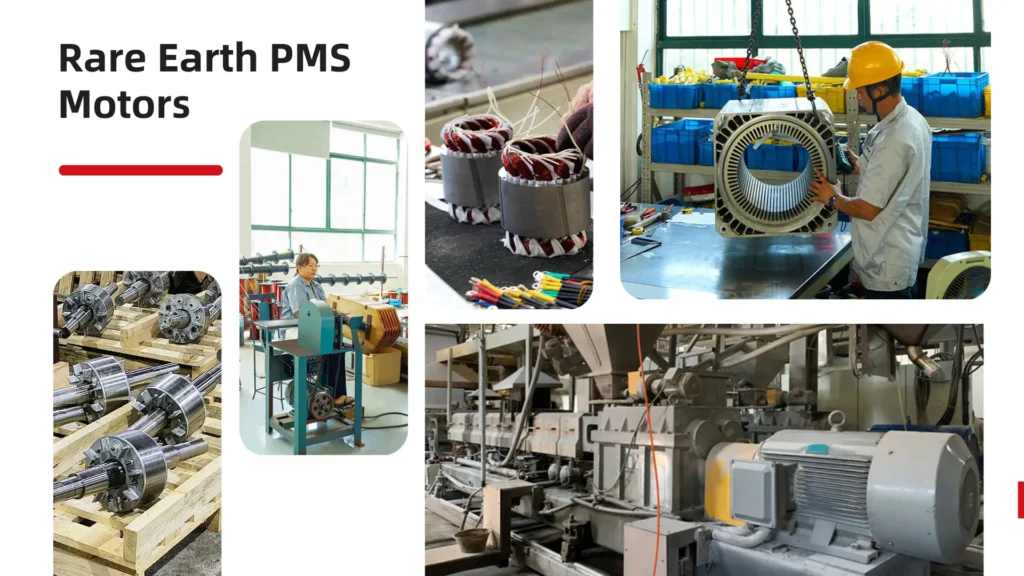
Ethical and Sustainable Sourcing
If sustainability is a priority, choose suppliers that adhere to ethical sourcing practices and prioritize environmental responsibility.
Suppliers that focus on sustainable practices not only help reduce your own environmental impact but also align with the values of consumers who prioritize corporate responsibility.
What Are the Environmental and Regulatory Considerations?
Compliance with Environmental Regulations
Ensure the motor complies with local and international environmental regulations, such as RoHS or REACH.
This minimizes legal risks and supports sustainability goals.
Compliance with regulations is not only important for legal reasons but also enhances your brand’s reputation as a responsible entity in the market.
Recycling and End-of-Life Disposal
Rare earth PMS motors are more environmentally friendly, but proper disposal and recycling are still important.
Check if the manufacturer offers recycling programs or guidance.
Having a plan for the end-of-life management of motors can further enhance your sustainability efforts and reduce waste.
Carbon Footprint Reduction
Using energy-efficient PMS motors can help your business meet carbon reduction targets and enhance your corporate sustainability profile.
By actively reducing your carbon footprint, you can improve your standing with regulators and customers alike, demonstrating a commitment to environmental stewardship.
How Do You Choose the Right Supplier?
Technical Expertise and Support
A good supplier should offer technical expertise to help you select the right motor and provide ongoing support for installation and maintenance.
Access to knowledgeable personnel can facilitate smoother transitions and ensure that you maximize the benefits of your investment.
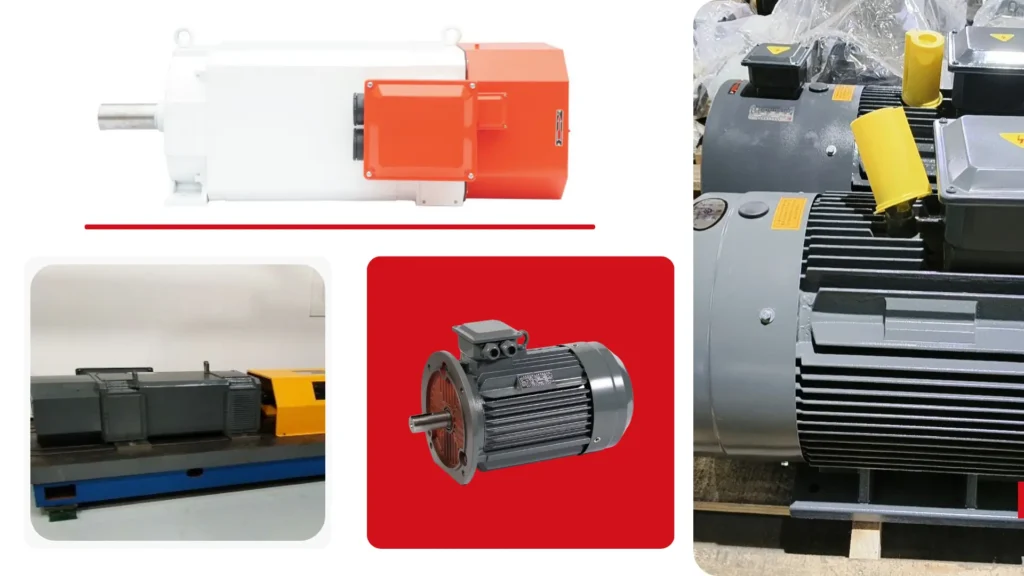
Customization Options
If your application has unique requirements, look for suppliers that offer customization options to tailor the motor to your needs.
Custom solutions can help you achieve optimal performance and efficiency, ensuring that the motor is perfectly suited for your specific application.
Global vs. Local Suppliers
Consider whether a global or local supplier is better suited to your business.
Global suppliers may offer more options and potentially lower prices, while local suppliers can provide faster delivery and support.
Evaluating the pros and cons of each can help you make a choice that aligns with your operational needs and strategic goals.
Conclusion
Choosing the right rare earth PMS motor for your business involves careful consideration of factors such as application requirements, energy efficiency, budget, quality, and supply chain stability.
By evaluating these aspects, you can make a well-informed decision that enhances operational efficiency, reduces costs, and supports your sustainability goals.
Rare earth PMS motors are a smart investment for businesses looking to stay competitive in today’s energy-conscious market.
Take the time to research and partner with a reliable supplier to ensure you get the best value for your investment.

